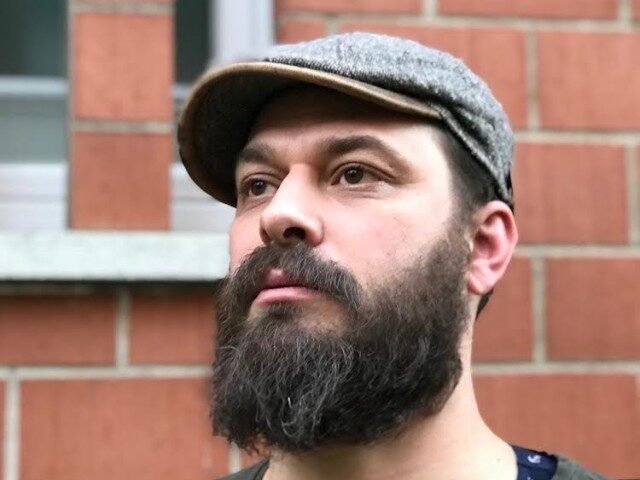Vasco Viviani knows music from multiple perspectives: records shop owner (Fargo Music in Chiasso), record labels founder (Pulver und Asche Records, Old Bicycle Records), musician (Nufenen), music populariser (sodapop.it) and organiser of underground concerts and festivals. In 2017 he founded “EEEE, Edizioni etiche ed estetiche”, a record label that produces one work per year: music cassettes, vinyl records, maybe in the future books. Vasco Viviani is also a social worker; currently he is the coordinator of the Centro Diurno Socio-Assistenziale Pro Senectute in Solduno.
Your experience in the field of music encompasses different perspectives. How has music and music-making changed over time?
The world has changed, consequently music has changed too, along with the reason why it is done and the way it is done. Having passed the age of 40, I belong to the school of thought of the intense enjoyment of music: starting and finishing a record, focusing, researching, delving into the history of musicians, creating an emotional and affective bond with the music, instead of being subjected to the sound and treating music as background. The connection with music is a very personal affair, but it often occurs that people with a similar feeling bond together and create circuits in which music is heard in the same way. In twenty years of activity in the music field, my aim has always been to lower the threshold of access to music by addressing those who are interested in discovering new sounds, those who want to be surprised by something they had never imagine existed, and thus enter a new realm.
You will present “EEEE, Edizioni etiche ed estetiche” at the Studio Foce. What is it?
“EEEE, Edizioni etiche ed estetiche” is the name of my latest record label. The guiding principle is the production of beautiful things done well, in a curated manner, reducing the number of productions. At the Foce, they will perform artists related to Ticino, who do not necessarily record for EEEE, but whom I feel akin to my musical and productive sense. On stage will be the lead artist Perpetual Bridge, a project by the artist Nadia Peter from Lugano who released (also thanks to the support of the City of Lugano and the Swisslos fund) her first long record in October with Everest records, a label from Berne. She will be preceded by Danilo Ligato, from Calabria and Graubünden, author of the suspenseful Fernweh, released on cassette for EEEE and, to break the ice, Daniel Drabek and Francesco Giudici, two musicians from Ticino who will be joined by the Zurich musician Simon Grab for a semi-improvisation session. They all fully represent the principles of EEEE: on the one hand there is trial, madness, on the other hand compositional rigour, romanticism and a certain accessibility which can make the wide public curious.
EEEE produces one musical work per year. How come?
It is a decision I made at the beginning of this adventure and it has paid off over the years. In my opinion, producing records is not something that can be done in a continuous cycle, because every single album requires a lot of attention. Producing music, for me, is a passion to which I can devote part of my time and my life, while still being able to cope with work and family commitments. In order to follow each album well, I have therefore lowered my productive rhythms. Of course, with every rule there are exceptions, some surprises have just arrived!
Today we are seemingly inundated with music, having an almost infinite catalogue of sounds at our disposal. What advice would you give to help people find their way around?
Do not underestimate music: enjoy a record in the same way you enjoy a book, a movie, a conversation with another person, that is, give it your attention and time. When you listen to a new record, give it 30, 40 minutes of your time, listen to it from beginning to end and let yourself be surprised, positively or negatively. At the same time, look at the visuals and the finishing touches related to the music you are listening to: for years it has been printed on media which are curated by the artists and record labels, they are the “clothes” that complete them. In a nutshell, I recommend giving the right attention to something that can change our mood, our day, give us energy, create the right soundtrack for our daily life.
You are also a social worker and work with the elderly. What role does the music play in your work?
It plays a very important role, in several ways. On the one hand in an active way, through singing and choir activities, involving people through songs and motifs – an integral part of our culture and an important vehicle of communication. On the other hand, by developing the curiosity and arousing reactions, positive and negative; each reaction provokes a pretext which generates an exchange of opinions, a discussion, an encounter. In this, music is a fundamental ally, as it gives us a way to communicate. What I notice at work is its absence: when the music is over, arriving in a place, it is the first thing one ; it is an important part of everyday life, the ingredient that manages to spice up and season the minutes we spend together.
Vasco Viviani presents “EEEE, Edizioni etiche ed estetiche” at Studio Foce on 18.11 at 21:00.
More information: foce.ch
